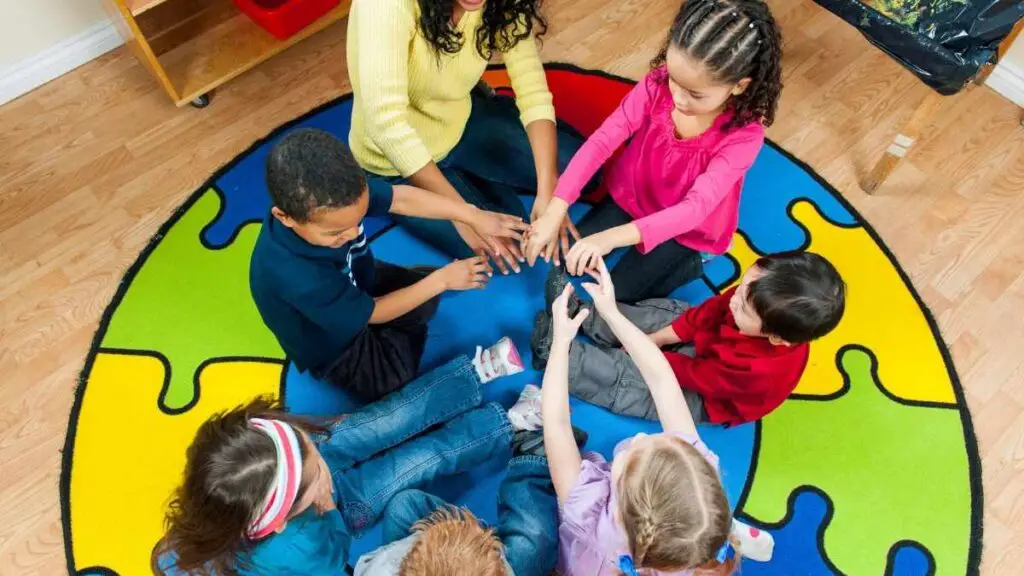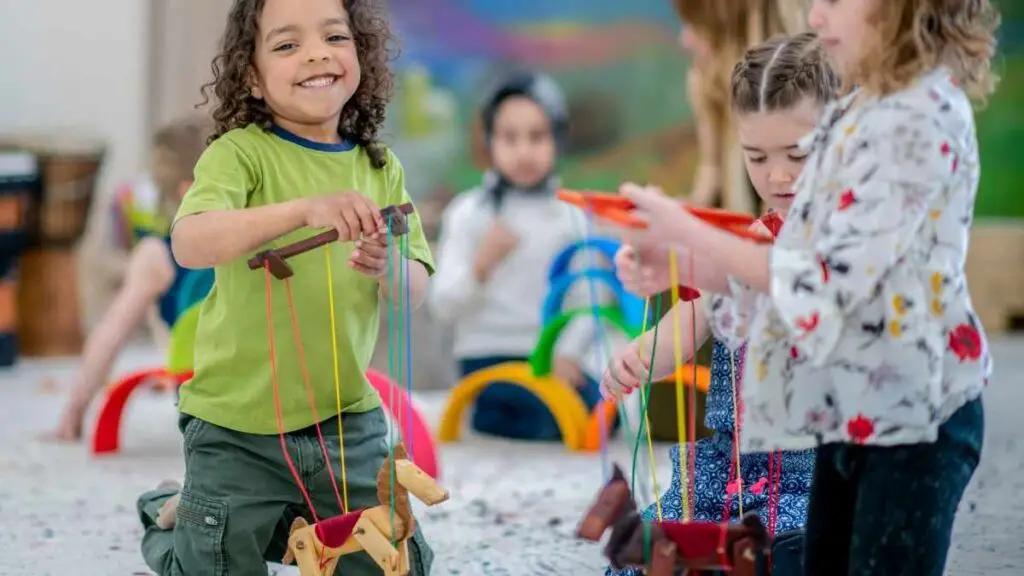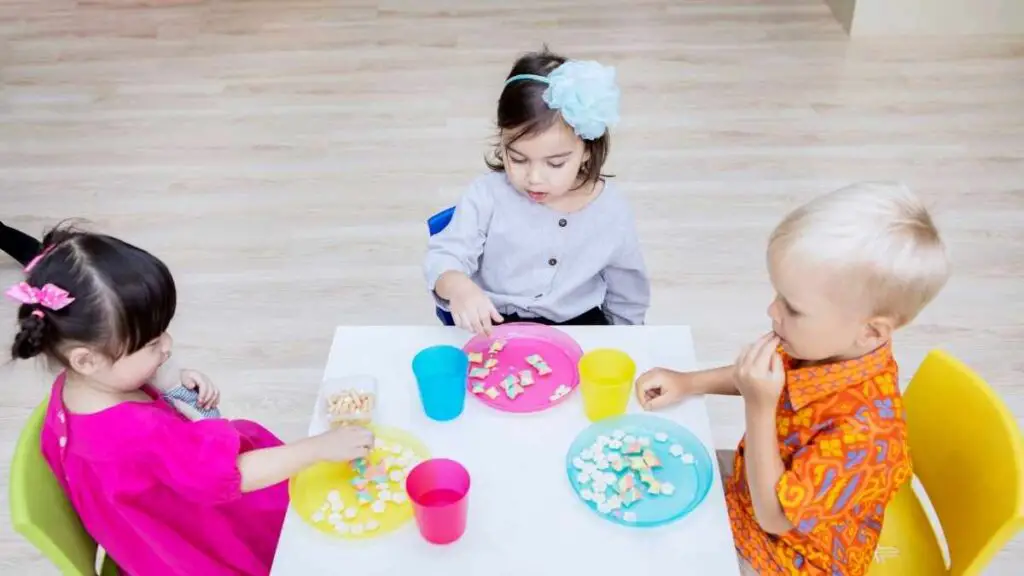Preschool is such a fun age.
Your child is just starting to come into themselves, learning all language, life, and social skills that will impact the type of adult they grow into.
They start to want independence at this age and recognize that they still need your help.
Still, preschoolers can do more than you may think, and here are 7 tips that can help you parent your preschooler.
Remember, no matter how hard it may be now, there is certainly light at the end of the tunnel!

7 Tips For Parents Of Preschoolers

Here are the essential tips you need to learn as a parent to a preschool child.
Assigning Simple Tasks to Promote Independence

Your preschooler can do simple chores and tasks, and by giving them small responsibilities, they will feel like they are making a difference in the family.
Instead of cleaning up after your preschooler, make them pick up their plates and put them in the sink – if they can reach it!
-

Bold Male Pride – Baseball Trucker Cap Celebrating Masculinity
£18.00 Select options This product has multiple variants. The options may be chosen on the product page -

Dad Bod Appreciation Gift Mug
£14.00 Add to cart -

Dad Bod, Bad Jokes Structured Baseball Cap
£22.00 Select options This product has multiple variants. The options may be chosen on the product page
Let your child dress themselves, and only help if they are struggling. Start simple and level up as they age with more complex tasks.
The more you let your child figure things out independently, the more independent they will feel. Of course, be on hand to assist when needed.
You never want to put your child in a dangerous situation but let them grab the book off the shelf or make their bed.
And no matter how hard it may be, resist the urge to fix what your child does.
This is a learning experience; they will never get better if you fix everything for them. You set the foundation for future success, no matter how rocky it may be to start.
Following a Structure to Reinforce Positive Behaviors

Structure and routines are essential for preschool children because it helps provide them with boundaries and limits for their day-to-day behaviors.
They learn how to behave in certain situations, and these behaviors will almost become second nature.
Your child will no longer need to think about what they are doing with a consistent routine; they will follow it.
School is essential to instill this sense of structure in your child, but you can also reinforce this behavior at home.
Pick a few routines and stick with them. Ask your kids to make their bed right after they wake up.
After school, have your child do their homework. You’re your hands before each meal.
These routines are a great first step to instilling positive behaviors in your children, and it’s never too early to start.
Make a Game Out of it!

No one likes to be told what to do, and children are no exception. One way to get around that is to make a game out of a chore.
Sing a clean-up song if you are trying to get your child to clean up their toys. If you are working with your child to tie their shoes, make a silly rhyme.
Games will teach them the importance of following rules, appreciating collaboration, and how fun certain tasks can be.
Whatever you do, make it fun and engaging. Your child will be more interested than if you force them to clean.
Remove If from Your Vocabulary

It is so important to watch our words around our children.
We know that we shouldn’t swear or talk about anything we wouldn’t want to be repeated, but one little-known tip is that we should also avoid using if statements.
‘If’ implies that there is a choice when there isn’t one.
We want to stress the cause and effect of our children’s choices and behaviors, so instead of saying if, say when. “When you put away your toys, we will get a snack” sounds much stronger than “If you put away your toys, we will get a snack.” Be firm with your language, and your child will notice a difference – and you will get better results.
Don’t Forget Playtime With Your Child

So much of our lives are in front of screens that our children pick up our bad habits.
They constantly need to be entertained with tablets, phones, and TVs that they forget how to be.
Too, an overabundance of structured activity can be harmful to our children. They don’t learn how to entertain themselves; instead of relying on constant stimulation to pass the time.
Let your preschooler play with their toys – no screens, no media, just simply playing.
This will help promote their imagination and remove some of the stress from you.
You do not need to entertain your child 24/7. They can play on their own.
Distraction is Your Best Friend

If your preschooler is doing something they are not supposed to, try to distract them with something else.
Distraction is a vital parenting skill!
If your child is upset because a parent is leaving, try to distract them with coloring as the parent leaves. If they are doing something naughty, try redirecting them to more positive behavior.
And, if your preschooler does something wrong, help them to fix it. If they colored the walls with crayons, have them clean them with you.
If they poured water on the ground, make them wipe it up.
You want to balance distraction with discipline to ensure your preschooler stops what they are doing and understands what they did is wrong.
Provide a Well-Rounded Diet

Our preschoolers would live on sugar if we let them, but it is important to watch their overall nutrition because it will play a critical role in their development.
As hard as it may be, you must instill a love for fruits and veggies from a young age.
If your preschooler refuses to eat them, try getting foods with hidden vegetables or making them a special shake packed with green goodies.
Look for foods low in fats, cholesterol, sugar, and sodium. You want to make sure they get a sufficient amount of calcium to promote bone health.
A daily multivitamin can help close any nutritional gaps as your preschooler develops their food preferences, and don’t forget to work on fun exercises.
Final Thoughts
I’ve covered 7 vital tips for parents of preschoolers in this post, but the battle is not over!
Each day is a battle. Don’t let your guard down for one second.
Preschool is a difficult time because preschoolers are ready to learn, and if they are not learning quickly enough, it may come out as frustration.
Please help your child learn at home to prepare for the huge learning experience they are about to embark upon. Encourage your child to want to learn. It isn’t easy. I know that! Remember that children learn at different speeds, and make it fun! That’s half the battle.
One day, your child may thank you for it.
Don’t hold your breath!
Good luck!



